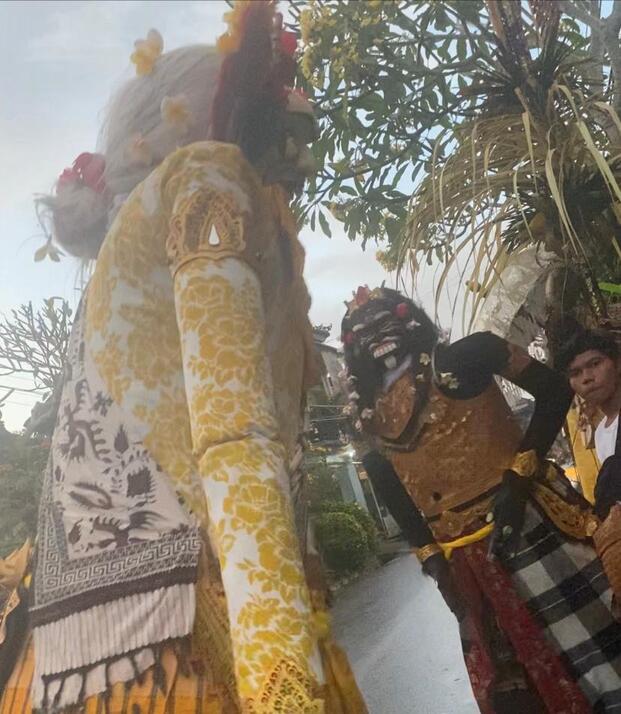The whole of Bali becomes very lively and festive during the Barong Landung festival. This is when the story of two famous characters is reenacted in each village on the island. In every corner and on the roads one can hear the typical gamelan music that accompanies the festival crowds who gather together and walk along the procession centred around tall statues dressed up in colourful clothes and wearing masks.

The legendary story goes on telling that the Balinese King Sri Jaya Pangus married a Chinese princess, Kang Wei Cing, the daughter of a rich Chinese merchant. The couple was happy together but they didn’t get a descendant. As a consequence of this, the whole kingdom was very sad. The king then decided to retire in meditation for some time on Mount Batur. While there, he fell in love with Dewi Danu, the guardian of the mountain. The couple also had a child and the story became more complicated when the king’s wife, Kang, went to look for him on Mount Batur and found out what had happened. This caused Dewin Danu to get very angry and she decided to transform the couple into two statues.
The festival is centred around these two statues, a man and a woman, respectively called 'Jero Luh' and 'Jero Gede'. The man is portrayed with a dark scary face with his teeth very protruded, whilst the woman has a white loving face with soft features and slanted eyes. This of course clearly represents the multicultural couple in their essence, but also represents the tragedy of their love story. As in many legends, there’s many different versions of its ending. Some like to have the Barong Landung symbolising the cultural ties between the two countries, the representation of the Yin and Yang philosophy, whilst another version underlines more of the consequences of one’s actions (dharma). It can also be said that the most symbolic point of the story, not being romanticism, is mostly about the island being represented as a place where different cultures melt together and where multi-faith, tolerance and peace triumph in a very accepting society.